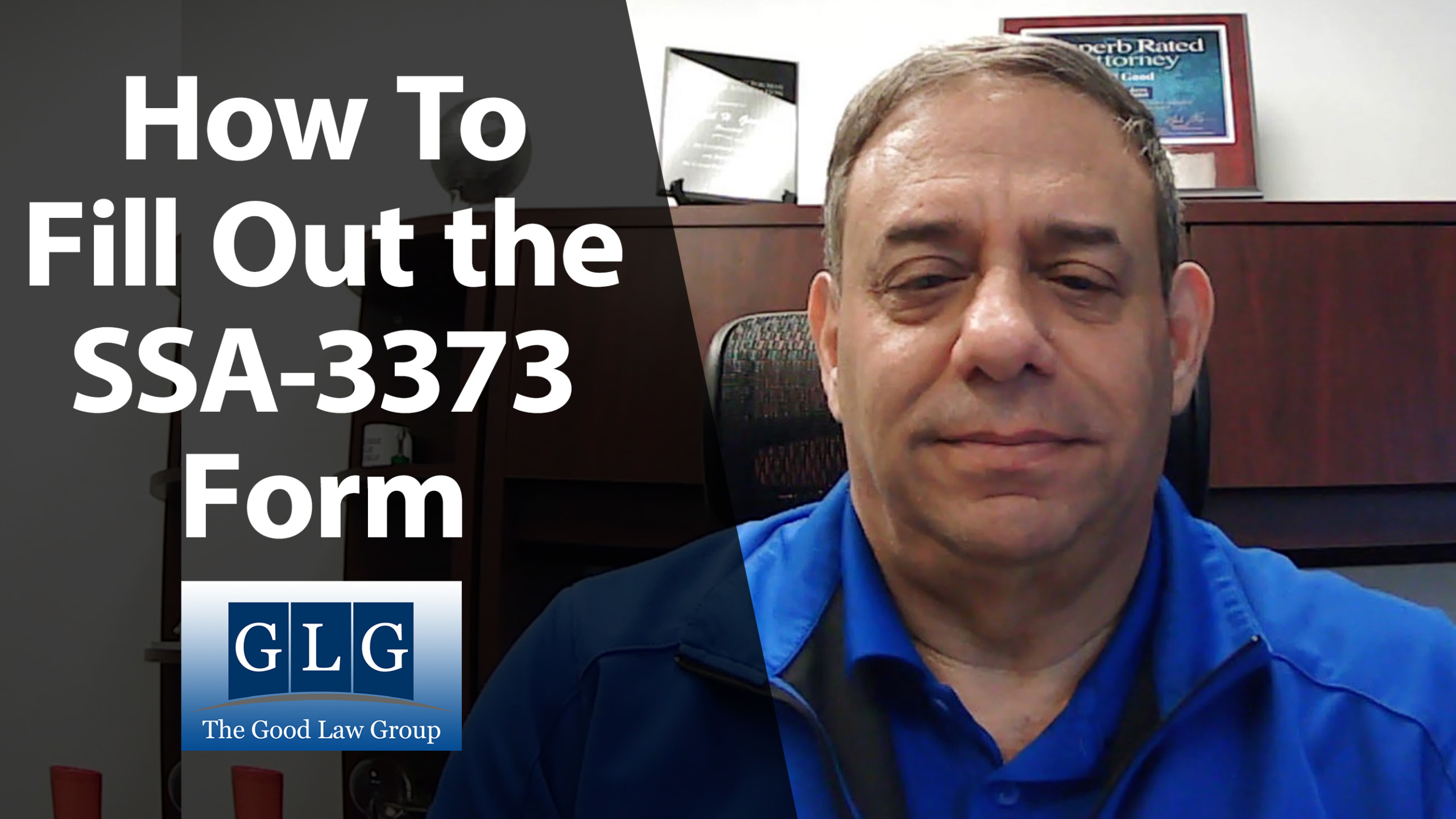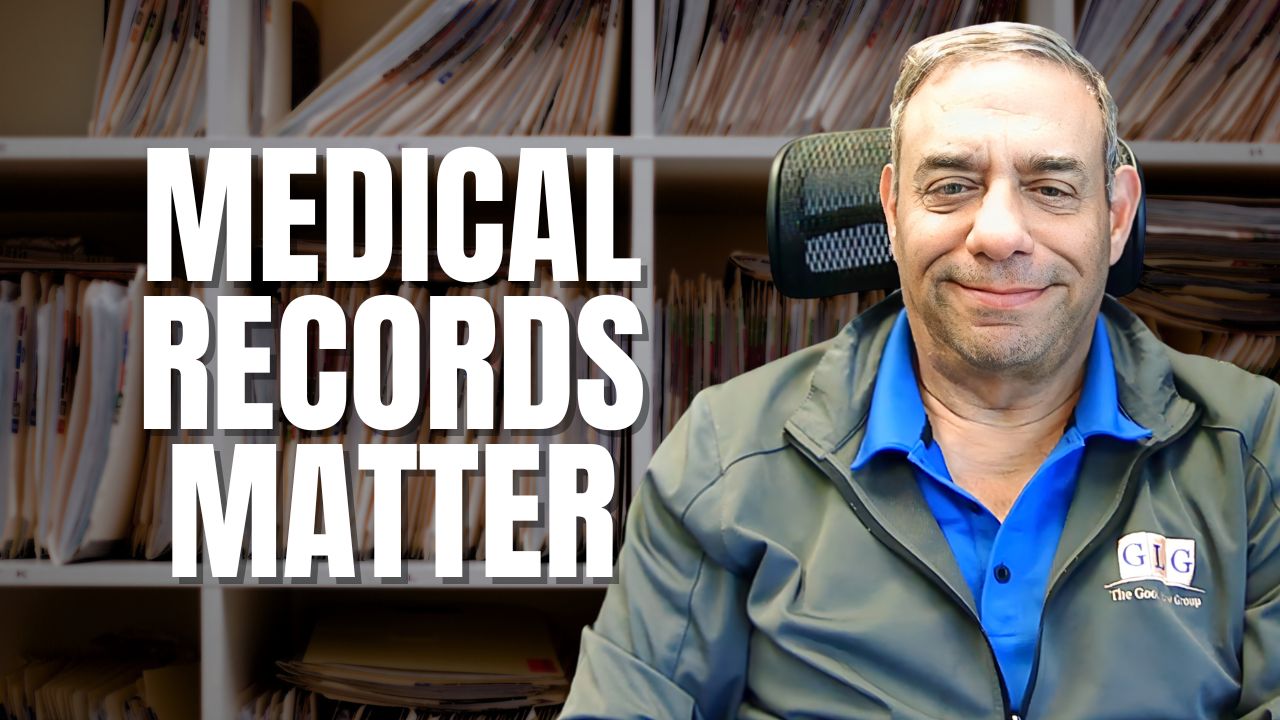When you apply for social security disability you will be required to complete a Function Report (Form SSA-3373-BK). The purpose of the Function Report is to provide the Social Security Administration with information about how your disability affects your ability to perform everyday functions. This information helps the Social Security Administration determine whether your disability prevents you from working, or if you could potentially perform other work.
Social Security Disability Function Report
Why the need for a Function Report if you must also submit your medical file? Medical files contain information supporting the disability diagnosis, such as X-rays, MRIs, and treatment notes. But a disability diagnosis, by itself, isn’t enough to qualify for social security disability benefits.
Eligibility depends on having a qualified disability and being able to demonstrate that the disability interferes with your ability to work. The Social Security Administration considers a person unable to work if their disability prevents them from participating in substantial gainful activity and if the inability to work is expected to last a year or more. In 2020 (the amount changes each year), the Social Security Administration considers a person to be gainfully employed if they earn more than $1,260 per month, or $2,110 if the applicant is blind.
To evaluate your application the Social Security Administration must therefore have information about how the disability interferes with your ability to perform everyday tasks. If you routinely visit your healthcare provider and discuss your limitations with him, some, if not all, of this information should be included in the medical record. But because not all files do – and because you are the expert on your condition and its impact on your ability to function – the Function Report is the best way to give the Social Security Administration the information it needs.
One important note: the Function Report is not the same as the Third-Party Function Report. Although the information they request is similar, the Third-Party Function Report is completed by your healthcare provider (or providers). This is why it’s important to schedule regular appointments with your doctor and to discuss your limitations and pain levels with them every time. The more information included in your medical file, the more information they will have to complete the Third-Party Function report, which will increase the chance that your benefits application will be approved.
What Information is Requested in the Function Report?
The Function Report asks for some biographical information before asking you to describe your ability to perform everyday tasks. You will be asked to answer questions about your ability to:
- Get dressed, eat, bathe, and use the toilet
- Prepare meals
- Perform house or yard work
- Walk, drive, or ride a bike
- Shop
- Manage finances
- Perform physical tasks (such as your ability to lift, stand, kneel, etc.)
- Mental limitations (such as issues with your ability to remember, concentrate, or understand instructions
- Sensory limitations (such as issues with your sight or hearing)
- Any medical devices you might use (for example, walker wheelchair, oxygen tank, cane, etc.)
It’s important to answer every question, and to answer them truthfully. Don’t exaggerate, but you also shouldn’t minimize the disability’s effects. Now is not the time to be stoic or worry about coming across as a whiner or lazy person by sharing what tasks you can no longer perform, or those you can perform only with great difficulty or assistance. Some questions may even be embarrassing or seem intrusive – it’s not every day you are asked to share your toileting habits, for example – but the Function Report is no time for modesty.
How to Complete the Function Report
Going over sections 12 through 22, this video explains the details about each section so you can fill everything out as accurately as possible.
Although you want to answer each question completely, it’s not necessary (or even advisable) to attach additional pages; the space provided on the form should be enough.
When answering the questions, use numbers whenever possible, frame the answers in terms of what you can do on your worst days, and, if possible, explain how the limitation would negatively affect your ability to perform job-related tasks. Here are some examples of how you would answer the questions (substituting your own details, of course):
On personal care activities:
- I need help buttoning or zippering my clothes because of the pain in my fingers.
- I need help pulling up/pulling down my underwear and pants because I cannot bend over; because of this, I need help using the toilet.
- I only wear button-down shirts because I cannot lift my arms above my head.
On cooking:
- On a bad day, my family brings my meals to me in bed or the recliner in the living room. On a good day, I can microwave a frozen meal or prepare a peanut butter, though I need someone to unscrew the lid because of weakness in my hands.
On your ability to walk:
- On a bad day, I can only walk short distances, such as from the bedroom to the living room, due to the pain, and I must use a walker or have someone guide me. On a good day, I can walk down the block and back but then must rest for 30-60 minutes. This would make me unable to deliver the office mail.
On mental limitations:
- I have a hard time focusing and need instructions repeated to me three or four times in order to remember, even with medication.
- A side effect of the medication I take to control my medical issue makes me forget instructions or where items are; I have to ask people, for example, where the paper is to refill the copy machine.
Remember: You are applying for social security disability benefits because you are unable to work. Minimizing your condition and its impact on your daily life because you’re embarrassed will only hurt you in the end.
If you or anyone you know needs legal representation or assistance in regards to attaining social security disability benefits, give The Good Law Group a call!









